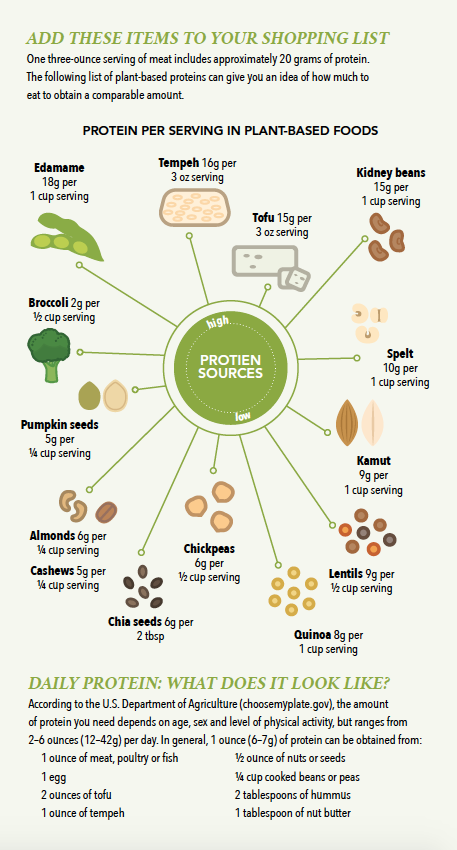Our bodies need protein in order to repair and build cells, and meat and dairy products are common sources in our diet. But if you are transitioning to a vegetarian or vegan diet, or just want to cut back on how much meat you’re eating, it is possible to get a sufficient supply of protein from plant-based foods.
These foods include:
- Vegetables
- Beans and peas
- Grains and seeds
- Nuts
- Tofu and other soy products
Along with protein, these plant-based foods provide vitamins and other nutrients your body needs, as well as a variety of health and environmental benefits.
“Plant-based proteins typically contain more fiber and less saturated fat than their meat alternatives, and are also naturally lower in cholesterol and sodium,” said Sarah Reed, RD, dietician at Augusta University Health. “Substituting plant-based proteins for meat intake not only reduces your risk for chronic preventative diseases such as cancer, cardiovascular disease, diabetes, and obesity, but also saves precious resources such as fossil fuels and water.”
There are many ways to replace meat with a mixture of plant-based proteins in meals and snacks, and still get a comparable amount of protein. Reed suggests using beans as a substitute for meat in taco filling, spaghetti sauce, hamburgers, meatloaf and meatballs; quinoa instead of rice for stir-fry or side dishes; tofu in casseroles, stir-fries, curries and lasagna; and coarsely ground sunflower or sesame seeds in desserts such as piecrust.
If transitioning to plant-based protein seems like a daunting task, Reed also suggests starting slowly, by incorporating them into snacks and meal plan ideas such as “Meatless Mondays.”
“Committing to substitute plant-based protein in place of meats one day a week encourages gradual change, as well as trying new foods and recipes,” she said. “In place of processed snacks such as cookies, candy and chips, consider substituting nuts and seeds at snack time. [They] can easily be added to granola, yogurt or trail mixes.”






